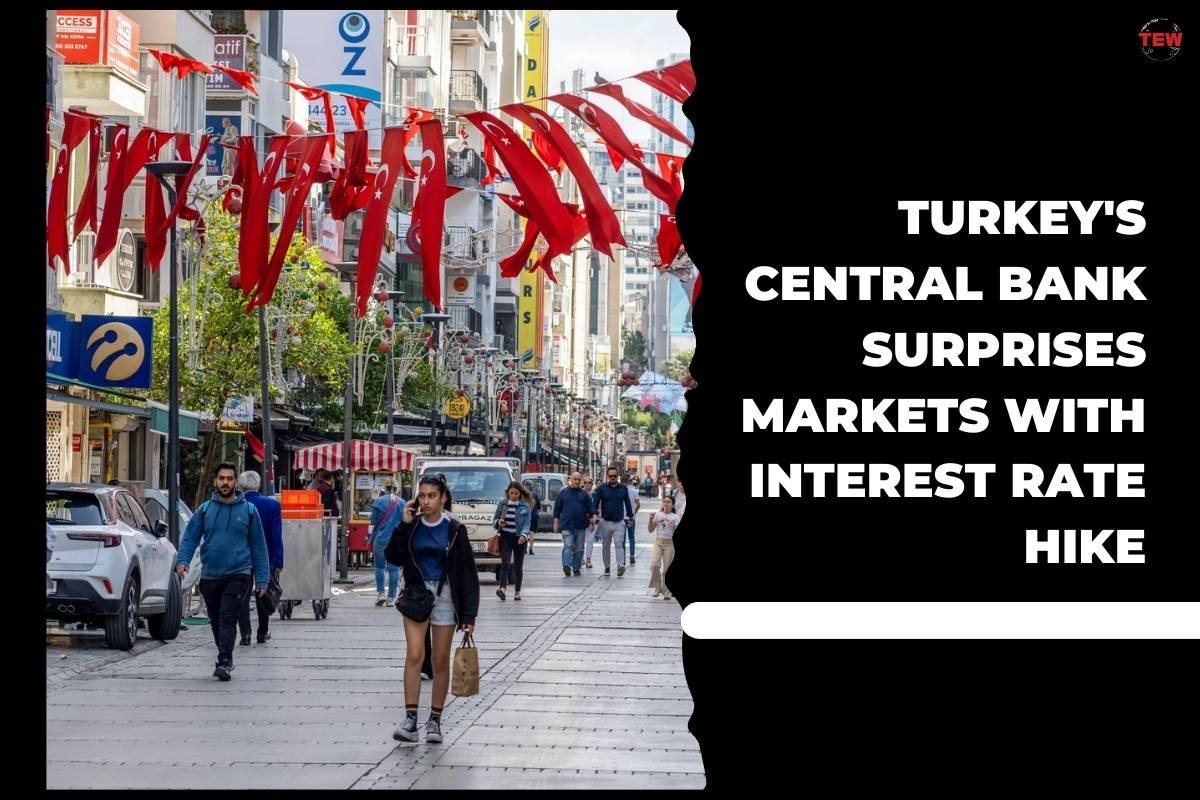Source – Bloomberg
Turkey’s central bank unexpectedly raised interest rates to 50% on Thursday, citing a deteriorating inflation outlook and a firm commitment to further tightening if inflation significantly worsens and persists.
The hawkish move, which occurred just 10 days before local elections, was interpreted by analysts as a signal of Turkey’s central bank’s independence from political influence and its determination to address rising prices.
In response to the hike from the previous rate of 45%, the lira surged by as much as 1.5% to 31.91 against the dollar, reversing weeks of steady declines in the Turkish currency. Additionally, Turkey’s dollar bonds experienced an extended rally.
Turkey’s Central Bank Takes Aggressive Stance to Combat Inflation
Since last June, following Recep Tayyip Erdoğan’s victory in the May presidential elections and a shift towards greater economic policy orthodoxy, Turkey’s central bank has raised its key one-week repo rate by 41.5 percentage points, up from 8.5%.
The central bank stated, “The tight monetary stance will be maintained until a significant and sustained decline in the underlying trend of monthly inflation is observed, and inflation expectations converge to the projected forecast range.” It added that policy “will be tightened in case a significant and persistent deterioration in inflation is foreseen,” following the monthly meeting of its rate-setting monetary policy committee.
Municipal elections on March 31
Piotr Matys, the senior FX analyst at InTouch Capital Markets in London, expressed surprise at the rate hike, noting, “Today’s decision is a very strong signal that Governor Fatih Karahan, who took over from Hafize Gaye Erkan when she unexpectedly resigned, is determined to bring staggeringly high inflation under control.”
Inflation soared to a higher-than-expected 67% in February, a period when the central bank had kept rates steady after a sustained series of hikes since June. While inflation is anticipated to dip around mid-year, the recent slide in the lira combined with declining foreign reserves had fueled expectations of further rate hikes, albeit not until after municipal elections on March 31, in which Erdoğan’s AK party aims to reclaim key cities such as Istanbul.
The central bank’s aggressive stance aims to curb inflation amid economic uncertainties. Governor Fatih Karahan’s resolute leadership underscores a commitment to stabilize the Turkish economy. While the rate hike surprised markets, it signals a proactive approach to restoring confidence and addressing inflationary pressures.





